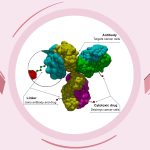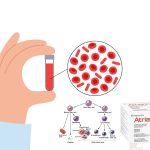Urothelial carcinoma, commonly known as bladder cancer, originates in the urothelium; the specialized tissue lining the urinary system. This form of cancer accounts for approximately 90% of all bladder cancer cases and about 7% of kidney cancer cases, including those in the renal pelvis and ureter. Bladder cancer is not just a local concern; it ranks as the eighth most common cancer worldwide, making awareness crucial for early detection and treatment.
Symptoms of Bladder Cancer:
Bladder cancer often remains asymptomatic in its early stages, which can lead to delayed diagnosis. The first noticeable symptom typically is hematuria or blood in the urine. It’s essential to seek medical advice if you experience this symptom or any of the following:
- Persistent back pain
- Fatigue and tiredness
- Unexplained weight loss
- Pain during urination
- A palpable mass or lump in the kidney area
- Low-grade fever
- Recognizing these symptoms early can significantly impact treatment outcomes and improve survival rates.
Causes and Risk Factors for Bladder Cancer:
The precise reasons why certain bladder cells undergo mutations and develop into cancer are not entirely understood. However, various risk factors have been identified that may increase the likelihood of developing bladder cancer, including:
- Smoking: One of the most significant risk factors, responsible for a considerable percentage of bladder cancer cases.
- Radiation Exposure: Prior radiation therapy for other cancers can elevate the risk.
- Chemotherapy: Certain drugs used in cancer treatment can predispose individuals to bladder cancer.
- Chemical Exposure: Regular contact with hazardous substances, particularly in industrial settings, may increase risk.
- Chronic Conditions: Frequent bladder infections and long-term catheter use can also contribute to the development of bladder cancer.
Diagnosis of Bladder Cancer:
Accurate diagnosis is vital for effective treatment. Healthcare professionals typically employ a combination of tests, including:
- Urinalysis: Analyzing urine for blood, cancer cells, or other abnormalities.
- Cytology: Microscopic examination of urine samples to detect cancer cells.
- Cystoscopy: A procedure using a thin tube with a camera to examine the bladder and collect tissue samples.
If these initial tests suggest the presence of bladder cancer, additional assessments may include: - Transurethral Resection of Bladder Tumor (TURBT): A surgical procedure to remove tumors for further analysis.
Magnetic Resonance Imaging (MRI) and Computed Tomography (CT) Scans: Imaging techniques to determine the extent of cancer. - Chest X-ray and Bone Scan: These tests help identify potential metastasis.
Treatment Options for Bladder Cancer:
Treatment plans are tailored based on various factors, including the cancer’s stage and grade, the patient’s overall health, and personal preferences. Common treatment modalities include:
- Surgery: Surgery is often the primary treatment for bladder cancer. The specific type of surgery depends on the tumor’s location and extent.
- Radiation Therapy: This treatment employs high-energy X-rays or other forms of radiation to target and kill cancer cells, helping to halt their growth.
- Chemotherapy: Involves the use of powerful drugs that can kill cancerous cells or prevent their multiplication. Common chemotherapy agents include carboplatin and cisplatin.
- Immunotherapy: Immunotherapy empowers the body’s immune system to combat cancer. Drugs like Avelumab and Nivolumab enhance the immune response against cancer cells.
- Targeted Therapy: Targeted therapy focuses on specific molecules involved in cancer growth. Medications such as ramucirumab and sacituzumab govitecan-hziy are designed to inhibit the actions of these proteins, reducing cancer spread.
Frequently Asked Questions (FAQs):
What are the early signs of bladder cancer?
The earliest signs often include blood in the urine (hematuria), frequent urination, and pain during urination. If you notice these symptoms, consult your healthcare provider.
Can bladder cancer be prevented?
While not all bladder cancer cases can be prevented, avoiding smoking, reducing exposure to harmful chemicals, and maintaining good urinary health can lower your risk.
How is bladder cancer staged?
Bladder cancer staging involves determining how far the cancer has spread. This process typically utilizes imaging tests and surgical evaluations to categorize the disease from stage 0 (non-invasive) to stage IV (advanced).
How can I buy Trodelvy for bladder cancer treatment?
You can buy Trodelvy online through the Indian Pharma Network (IPN), which facilitates access to the medication in India and other countries where it may not be approved or readily available.
What is the prognosis for bladder cancer?
Prognosis depends on various factors, including cancer stage at diagnosis and overall health. Early detection often results in better outcomes, while advanced stages may require more intensive treatment.
What lifestyle changes can help during bladder cancer treatment?
Staying active, eating a balanced diet, managing stress, and avoiding tobacco can enhance overall health and potentially improve treatment outcomes.
Can I buy Trodelvy in different cities in India for bladder cancer treatment?
Yes, you can buy Trodelvy online in major cities like Lucknow, New Delhi, Noida, Gurgaon, Ahmedabad, Mumbai, Bangalore, Chennai, Hyderabad, Kolkata, Pune, Jaipur, Surat, Kanpur, Nagpur, Visakhapatnam, Indore, Bhopal, Patna, Vadodara, and Chandigarh from Indian Pharma Network (IPN). Kindly contact us today.
Conclusion:
Understanding bladder cancer and its implications can empower individuals to seek timely medical attention, leading to better health outcomes. If you notice any symptoms associated with bladder cancer or have risk factors, it’s crucial to consult with a healthcare professional for evaluation and potential screening. Early detection and treatment can make a significant difference in your journey with this disease.
References:
https://www.cancer.gov/types/bladder
https://www.cancer.org/cancer/types/bladder-cancer/detection-diagnosis-staging/signs-and-symptoms.html






